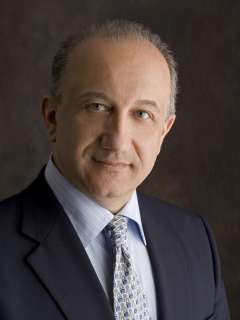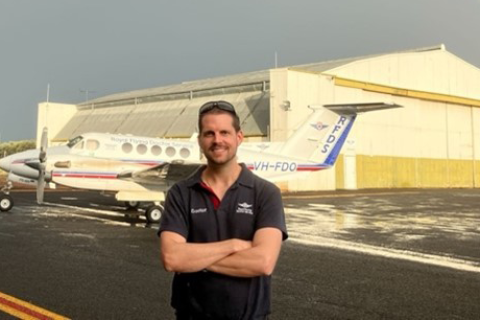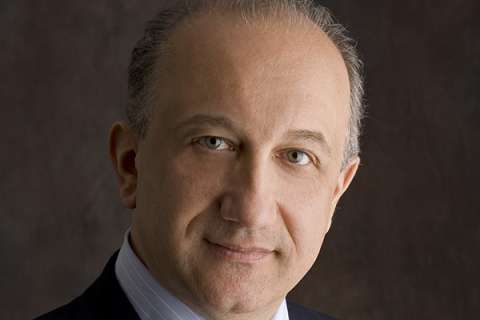
Marco Giovannini, MD, PhD
Languages
Contact Information
Scientific Interests
The long-term interest of Dr. Marco Giovannini's research laboratory is the genetics and biology of human cancer predisposition and progression. His lab has made a number of seminal contributions to the characterization of major tumor suppressors such NF1, NF2, p53, APC, and SMARCB1. Using a variety of engineered mouse lines to study the effects and interactions of these genes in vivo, the lab strives to develop models that faithfully replicate human tumorigenesis. These in turn are utilized for the development and testing of novel treatments and therapeutics.
In particular, the Giovannini lab's present research interests focus on the function of the NF2 tumor suppressor gene, mutated in patients with neurofibromatosis type 2 (NF2) with the goal of providing novel therapeutic options to patients. Subjects who inherit a mutated allele of the NF2 gene inevitably develop schwannomas affecting particularly the superior vestibular branch of the 8th cranial nerve, usually bilaterally. Meningiomas and other benign central nervous system tumours such as ependymomas are other common features. Recent studies suggest that the NF2 protein may coordinate the processes of growth-factor receptor signaling and cell adhesion. Varying use of this organizing activity by different types of cells could provide an explanation for the unique spectrum of tumors associated with NF2 deficiency.
Although NF2 affects a relatively small percentage of persons, population studies suggest that up to 1 in 300 people will develop a tumor with an underlying sporadic NF2 mutation in their lifetime. This includes patients with unilateral (sporadic) vestibular schwannomas and meningiomas. Therefore, what is learned in developing therapies for NF2-related tumors promises broader clinical applications. The recent discovery that the gene responsible for NF2 is also associated with a number of different kinds of cancers has expanded the impact of this work dramatically.
The lack of satisfactory treatments for NF2-related tumors represents a significant unmet medical need. The overarching goal of Giovannini's lab is to find drugs that will improve the treatment and long-term survival of NF2 patients, and ultimately provide them with a better quality of life.
Highlighted Publications
Goutagny S, Raymond E, Esposito-Farese M, Trunet S, Mawrin C, Bernardeschi D, Larroque B, Sterkers O, Giovannini M, Kalamarides M. Phase II study of mTORC1 inhibition by everolimus in neurofibromatosis type 2 patients with growing vestibular schwannomas. J Neurooncol. 2015 Apr;122(2):313-20. doi: 10.1007/s11060-014-1710-0. Epub 2015 Jan 8.
Giovannini M, Bonne NX, Vitte J, Chareyre F, Tanaka K, Adams R, Fisher LM, Valeyrie-Allanore L, Wolkenstein P, Goutagny S, Kalamarides M. mTORC1 inhibition delays growth of neurofibromatosis type 2 schwannoma. Neuro Oncol. 2014 Apr;16(4):493-504. doi: 10.1093/neuonc/not242. Epub 2014 Jan 10.
Paganini I, Chang VY, Capone GL, Vitte J, Benelli M, Barbetti L, Sestini R, Trevisson E, Hulsebos TJ, Giovannini M, Nelson SF, Papi L. Expanding the mutational spectrum of LZTR1 in schwannomatosis. Eur J Hum Genet. 2014 Oct 22. doi: 10.1038/ejhg.2014.220. [Epub ahead of print]
Tanaka K, Eskin A, Chareyre F, Jessen WJ, Manent J, Niwa-Kawakita M, Chen R, White CH, Vitte J, Jaffer ZM, Nelson SF, Rubenstein AE, Giovannini M. Therapeutic potential of HSP90 inhibition for neurofibromatosis type 2. Clin Cancer Res. 2013 Jul 15;19(14):3856-70. doi: 10.1158/1078-0432.CCR-12-3167. Epub 2013 May 28.
Peyre M, Stemmer-Rachamimov A, Clermont-Taranchon E, Quentin S, El-Taraya N, Walczak C, Volk A, Niwa-Kawakita M, Karboul N, Giovannini M, Kalamarides M. Meningioma progression in mice triggered by Nf2 and Cdkn2ab inactivation. Oncogene. 2013 Sep 5;32(36):4264-72. doi: 10.1038/onc.2012.436. Epub 2012 Oct 8.


